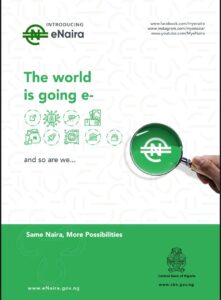The Federal Government is targeting a gross domestic product (GDP) of over $12 trillion by the year 2950.
The FG is also targeting a per capita income of $33,000 per anum.
The Minister of Finance, Budget and National Planning Mrs Zainab Ahmed disclosed this Friday in Abuja at the launch of the National Plan for Financing Safe Schools.
“With an average real GDP growth rate of 7%, a GDP of about $12 trillion by 2050, and an end period per capita income of $33,000 per annum” is projected she said.
according to her, “these lofty targets can only be actualized if all critical stakeholders collaboratively create safer teaching and learning environments across Nigeria via critical intervention investments as captured in the validated costed plans of action.”
According to her, the Federal Government made a commitment at the High Level Meeting on Financing Safe Schools in partnership with EEG, held in April 2021 and also at the Fourth International Conference on the Safe Schools Declaration held in October, 2021 the Ministry’s pledge to facilitate adequate funding in protecting education from attacks.
She said these commitments led to the development of the National Plan.
“The Plan which is a four-year investment plan was developed through rigorous consultative strategic engagements with all relevant critical stakeholders in the Education and Security sectors at national and sub-national levels such as the Federal Ministry of Education; Nigeria Police Force; Nigerian Security and Civil Defense Corps (NSCDC); Department of State Security (DSS); Defense Headquarters (Army, Navy and Air Force). Inputs from the 36 States and Federal Capital Territory Ministries of Education, Finance and Budget, development partners; donor agencies and civil society organizations” she explained.
The minister further stated that the “National Plan will be implemented between 2023-2026, with a total investment size of N144.8 billion.”
“The Plan proposes N32.58 billion in 2023, N36.98 billion in 2024, N37.15 billion in 2025, and N38.03 billion in 2026, respectively. To this end, the Federal Government has made a provision of N15 billion in the 2023 Budget, leaving a funding gap of N13.6 billion in 2023, expected to be filled by State Governments, Agencies, the private sector, and development partners interested in supporting Nigeria” she said.
“At this juncture, I wish to charge all critical stakeholders, especially implementing Agencies to ensure that as part of their valuable contributions to the economic growth of our country, they prioritize funding these identified costed plans of action aimed at ensuring we safeguard our teaching and learning environments. In the same vein, we appeal to our development partners, and seize this opportunity to applaud the World Bank Group for launching the Human Capital Project (HCP) that shares similar core objectives and expected outcomes as our National Plan. We intend to explore all innovative sources of funding to cover the funding gap that could hinder the implementation of this critical intervention. We are confident that Nigeria’s innovative financing model would serve as a benchmark for other countries facing the same challenges of violence in the education sector” she stated.
The minister indicated that the data-driven National Plan on Financing Safe Schools amongst others intends to achieve measurable outcomes such as a reduction in the number of out-of-school children and improve Nigeria’s rating in Human Capital Index in the long run.
“As a Ministry, one of the Priority Areas of the President Muhammadu Buhari’s led Administration we are assigned the responsibility of implementing its deliverables is Priority Area 6- “Improve Health, Education and Productivity of Nigerians”, hence, I can say that this cross-cutting Priority Area would receive an immense boost from the achievement of the objectives of this National Plan on Financing Safe Schools” she stated.















